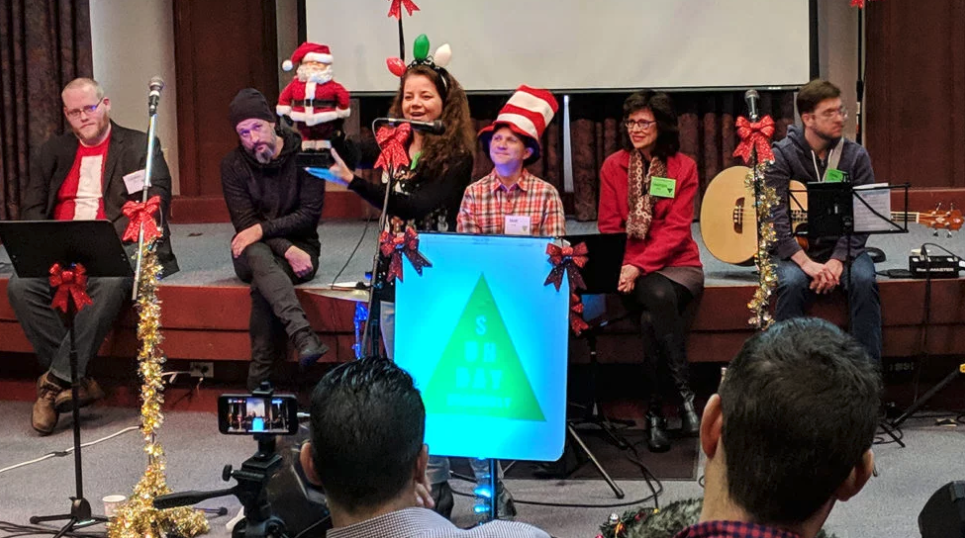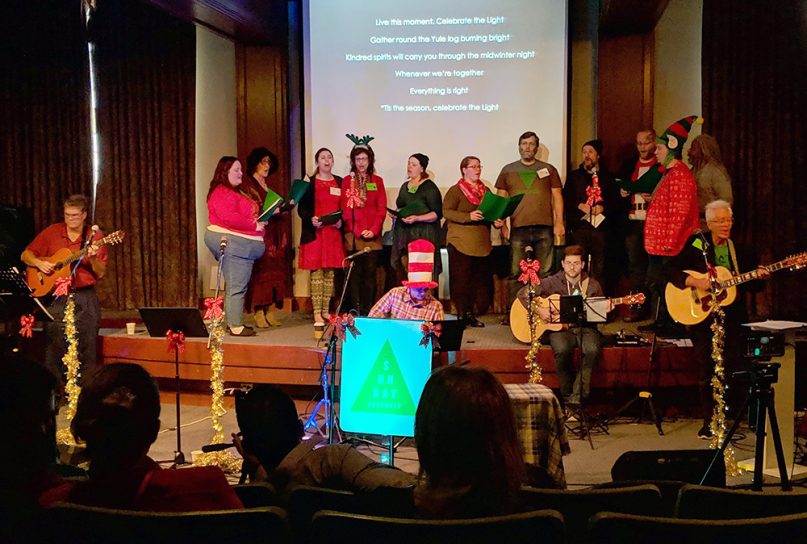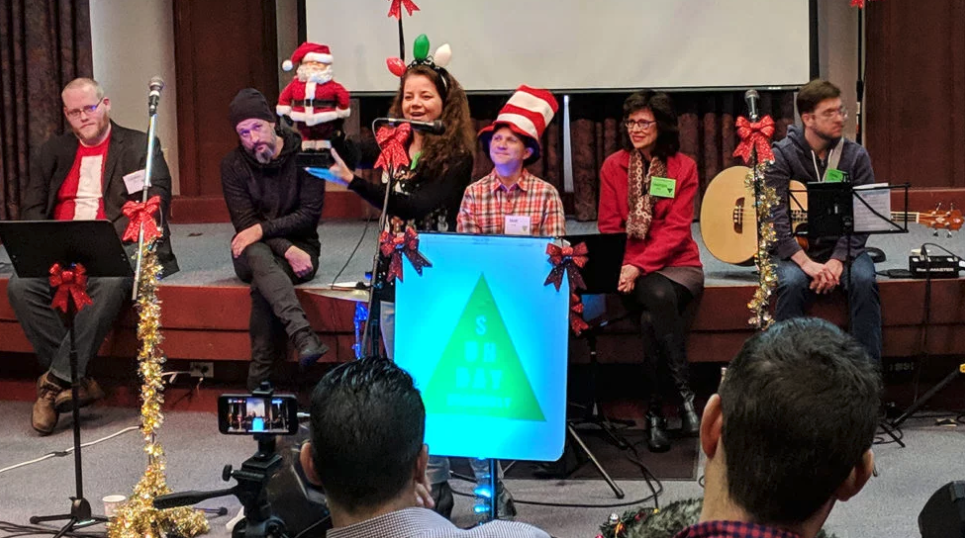
[Religion News Service] NASHVILLE, Tenn – The sounds of the season filled the halls of the Scarritt Bennett Center at Vanderbilt University on a recent Sunday morning.
In the chapel, a congregation of about 80 people gathered, while the band launched into a holiday classic: “You’re a Mean One, Mr. Grinch.”
They followed up with a cover of Tim Minchin’s “White Wine in the Sun.”
“I really like Christmas. It’s sentimental, I know, but I just really like it,” sang Adam Newton, host for the Sunday service. “I am hardly religious. I’d rather break bread with Dawkins than Desmond Tutu, to be honest.”
Welcome to the “Heathen Holidays,” a Christmas celebration for the nonreligious, hosted by the local chapter of the Sunday Assembly.
It’s a way to celebrate the joy of the Christmas season “without the discomfort of paying homage to any particular religion,” said Nicole Dittrich,one of the attendees.
Many of the people attending the service were in the holiday spirit, decked out in tacky Christmas sweaters. One person was even wearing a red blazer and a red and green Christmas hat to match, complete with pointed elf ears.
The service began with a singalong version of “A Hazy Shade of Winter” by Simon & Garfunkel.
Patrick Horst, who regularly attends the monthly Sunday Assembly Nashville gatherings and serves on the board, said SAN offers what he felt was missing once he left the Christian church.
Especially at the holidays.
“For a lot of people, religion or faith is for a sense of community, for being around people who are like-minded. SAN provides community and a space for us to think about what makes for better living,” he said.
Nashville’s Sunday Assembly is one of several in the Bible Belt, all inspired by the first assembly, which began meeting in London five years ago. The secular congregation celebrates life, according to the organization’s website.

Sunday Assembly Nashville congregants sing seasonal carols while meeting at Vanderbilt University on Dec. 9, 2018, in Nashville. RNS photo by Bailey Basham
Its sister congregations are also celebrating the secular side of Christmas. The Sunday Assembly in Knoxvillle is planning a Winter Solstice Party on Dec. 22, while an Atlanta group held a Yule-Rock, with live holiday music, singalongs and holiday stories.
A 2017 study by the Pew Research Center found that just over half of Americans (55 percent) celebrate Christmas as a religious holiday, down from 59 percent in 2013.
Thirty-three percent celebrate Christmas as a cultural holiday. Nine percent celebrate it as both religious and cultural.
Eight percent skip Christmas altogether.
Laurel Schneider, professor of religious studies, religion and culture at Vanderbilt, isn’t surprised to see the Sunday Assembly holding a Christmas service — or regular services on Sundays.
“There’s a long tradition in America of this kind of thing. This is just a new form of it,” she said. “You bring the feeling of what you’re missing, and that may be similar to what you left.”
Schneider said groups like the Sunday Assembly fill a need, especially for people who used to be part of a church or other religious community but have since left.
“The goods of religion are real. The social cohesion, the inspiration to do better, a space to form connection with people, intergenerational exposure, a place to sing — where else do you get to sing?” she said. “Some of those really basic things really get lost when you leave church. But there is this desire to have those goods without what has become burdensome for whatever reason.”
To continue reading, click here.
[Editor’s Note: This article was written by Bailey Basham and first published at Religion News Service, headline changed by P&P]











